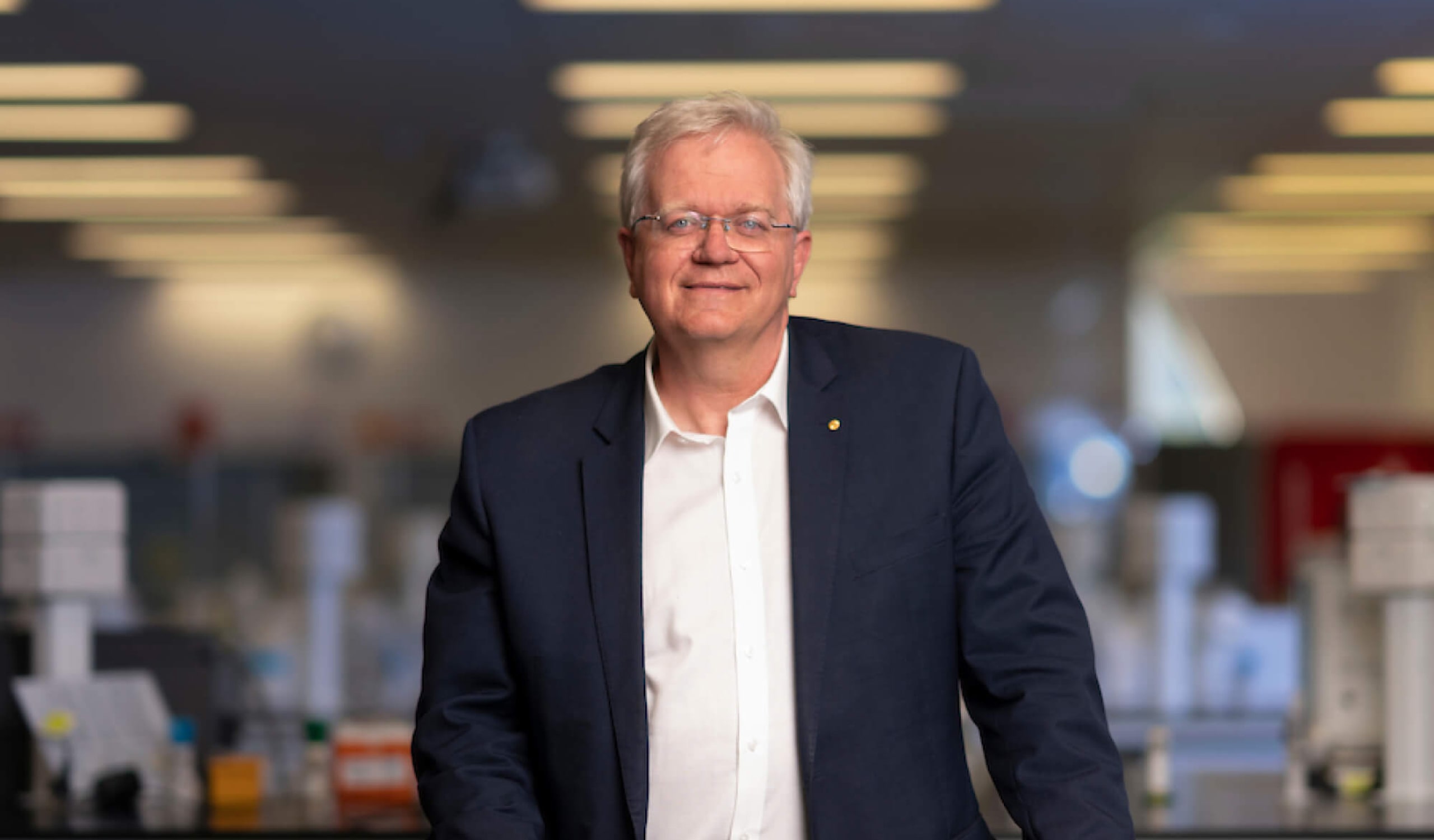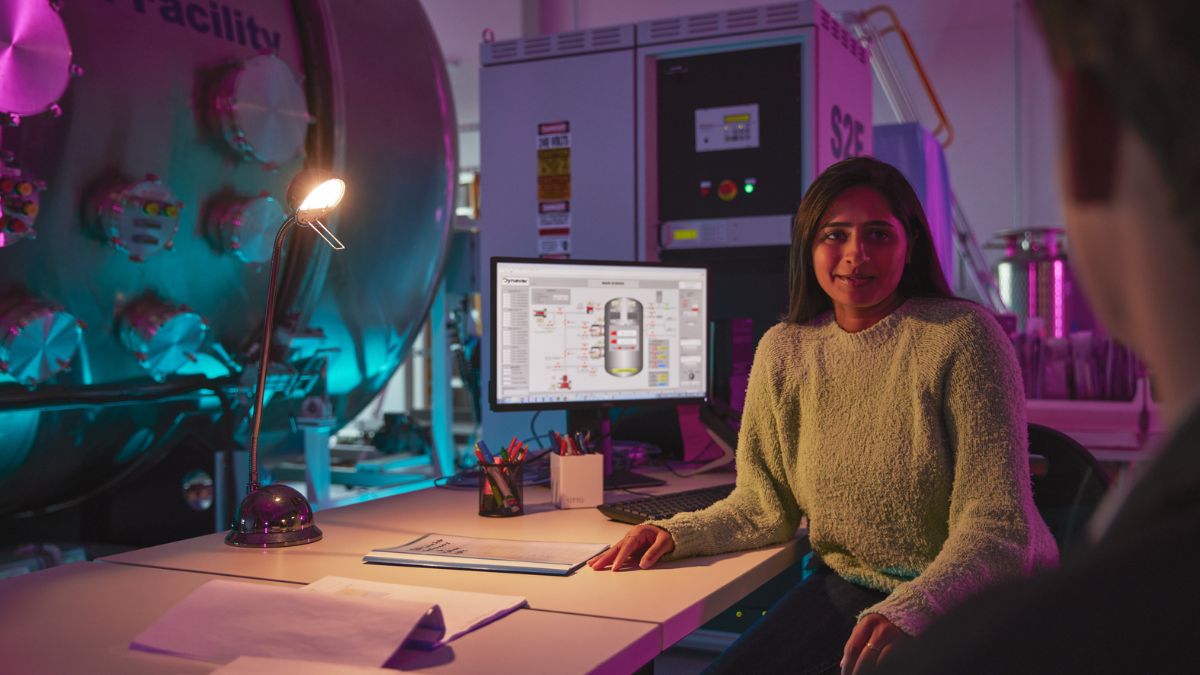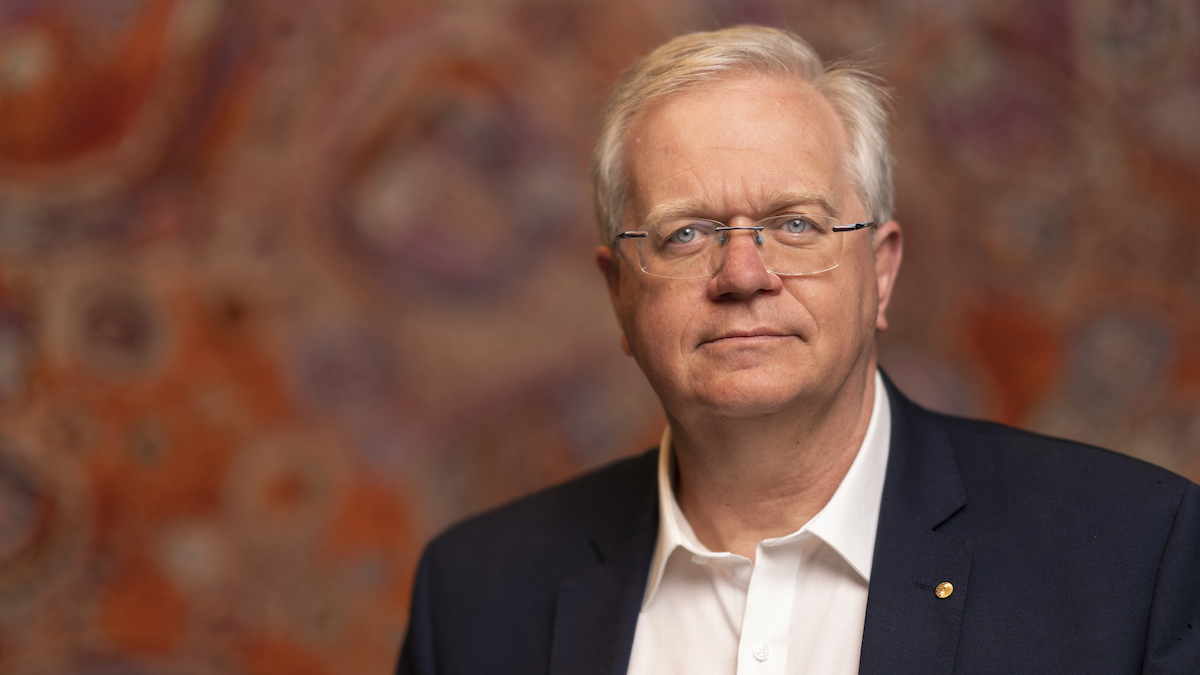
Published on
The vice-chancellor who boldly went where none had gone before
Seven years after taking on the top job at ANU, world-renowned astrophysicist Brian Schmidt reflects on winning the Nobel prize, being rejected from Australia’s national university three times in a row and the challenge of shaping the ultimate student experience.
Overview
- In 1988, Brian Schmidt made a startling discovery that turned on its head conventional wisdom about the universe we inhabit.
- As a postdoctoral researcher at The Australian National University’s Mount Stromlo Observatory Brian discovered the universe is expanding at an accelerating rate, not contracting as previously understood.
- You may find it surprising, then, that Brian, who has worked for the last seven years as ANU vice-chancellor, wasn’t at first accepted into the university that has undergone an incredible transformation under his leadership.
When fictional USS Enterprise commander Captain James T. Kirk declared his starship’s mission was to explore the mysterious outer reaches of space – to “boldly go where no [one] has gone before” – he may well have benefitted from having an enthusiastic 27-year-old PhD graduate by the name of Brian Schmidt on board.
Brian, who in 1998 made a startling discovery that turned on its head conventional wisdom about the universe we inhabit, is nothing if not persistent when it comes to scientific discovery.
"There are not many [universities] that would allow a 27-year-old post doc to do this huge experiment and give them the resources and the freedom to do it. That was what really made [the Nobel prize] happen."
While he was a postdoctoral researcher at The Australian National University’s Mount Stromlo Observatory, Brian discovered the universe is expanding at an accelerating rate, not contracting as previously understood, and that more than 70 per cent of its mass is made up of a dark energy nobody knew existed.
The extraordinary finding was named discovery of the year by Science magazine and earned him the 2011 Nobel Prize in Physics.

Brian Schmidt receives his Noble Prize in Physics.
It’s surprising, then, that the man who counts a highly successful seven-year stint as ANU vice-chancellor among his myriad career achievements almost wasn’t accepted into the university that has undergone an incredible transformation under his leadership.
In 1995 the Montana-born science-lover, with undergraduate degrees in astronomy and physics from the University of Arizona and a PhD from Harvard under his belt, arrived in Canberra with his Australian wife Jennifer Gordon seeking work.
While economist Jennifer received six job offers almost immediately, Brian found it more difficult to catch a break.
“Mount Stromlo Observatory at ANU is one of the best places in the world to do astronomy so that was a great job for me, but it took me four attempts [to get in],” he says.
“Yes, I had just done my PhD at Harvard but that doesn’t mean you get a free pass to come to ANU. I was in an international selection three times, and I did not finish at the top of the pile three times in a row. And it’s not because the process was wrong or bad. It was a very strong field.”
It was only on his fourth attempt that he cracked it by pitching to the selection committee his ambitious idea for the experiment that ultimately would lead to his discovery of cosmic acceleration.
“Jeremy Mould, the director at Mount Stromlo at the time, knew [my idea] was a little crazy but it was bold and he gave me a job and the resources I needed to run a global team,” he says.
“There are not many [universities] that would allow a 27-year-old post doc to do this huge experiment and give them the resources and the freedom to do it. That was what really made [the Nobel prize] happen. And I had great colleagues at Mount Stromlo who provided the support, guidance and mentoring that is an important part of things too.”
Known today as Professor Brian Schmidt AC, FAA, FRS, he describes the aftermath of his discovery, which could not have happened without the heft of Australia’s leading research university, as “a wild ride”.

Brian Schmidt in front of calculations.
The breakthrough, he explains, means that as the expansion of the universe continues at pace, we will see less and less of it over time. “Parts of the universe we can see today we won’t be able to see tomorrow. They will literally disappear,” he says.
“[Ultimately], it may well be that every single sub-atomic particle will become disconnected from every other sub-atomic particle in the universe. But that is so far in the future and a little speculative, so it’s hard to really know.”
Brian recalls the anxious weeks and months after going public with the discovery.
“You publish, as one does, and you wait and see if someone is going to go, ‘Oh you guys screwed up’. You are kind of worried about it. But after a couple of weeks [with no negative feedback] you go, okay, interesting…” he says.
When a separate ground-breaking study led by American astrophysicist Saul Perlmutter (jointly awarded the Nobel prize in 2011) corroborated the findings of Brian’s team, any further doubt evaporated.
“I remember looking at my wife and saying, ‘I’ll be damned, I think we’re right’,” says Brian, whose extraordinary career has been the result of determination, ambition and a willingness to have a go.
As a kid, Brian was interested in astronomy but put off by the thought that “only the smartest people in the world” become astronomers: “I was a good student, but I was not the smartest person in the world!”
But when a stint volunteering at the national weather service quickly put paid to his early dream of becoming a meteorologist – “we were in the forecasting office in Alaska but all the exciting bits of meteorology, the science bit, happened down in Oklahoma” – his attention returned to his original passion.
“Though I didn’t think I’d become an astronomer, I knew I would enjoy [studying] it because it would teach me physics, engineering, coding, mathematics and more, and these would all be very useful skills to get a job. I was absolutely right about that. And I did surprise myself by getting into grad school at Harvard,” he says.
Brian insists that the key to a rewarding career is to do something you enjoy, and not to prejudge whether you’ll be successful at it until you give it a try.
“One of the best pieces of advice I was ever given is that if you can find a job that you’re prepared to do for free, then do that job. I was given this advice in high school, and it didn’t quite make sense at the time but I completely get it now,” he says.
“There are lots of things you can do in life, not just one thing. I could easily have ended up in the tech boom of the early 90s doing computer programming or engineering if I hadn’t stayed in academia.”
"I hope that under my leadership the University has coalesced around a direction and vision for what it wants to be… [which is] different than any other university in Australia."
Brian says the work he has done since his 2016 appointment as vice-chancellor of the University comes close to winning a Nobel prize in terms of job satisfaction.
Under his leadership, ANU has attracted more Australian students than ever before, transformed its campus with new facilities and residences, and seen scholars win major national and international prizes despite the unprecedented challenges of the COVID-19 pandemic.
“I hope that under my leadership the University has coalesced around a direction and vision for what it wants to be… [which is] different than any other university in Australia,” he says.
“It’s a university that’s been important to me and I felt it was really important to be prepared to stand up and try to make it better… to help the students that have come through in its lifetime and the staff.”
Brian will step down from the vice-chancellor role at the end of 2023 but will redouble his efforts to bring positive change in his remaining 10 months.
“[ANU has] a real mission around Australia’s role in the world and how we can [foster] the incredible capability of the language, history, culture and economics of the Indo-Pacific region. In the time I have left in the role I’m going to continue to help ANU on this mission,” he says.
After taking some time “to get my skillset back up… practising programming again”, and getting to grips with “some of the new machine learning stuff that has really blossomed”, Brian intends to continue his astrophysics research at Mount Stromlo and, beyond that, return to teaching, with plans to introduce an exciting new experience for ANU students.
“I’d like to create a class that everyone sees as being one of the best experiences,” he says. “It will explore contemporary Australian issues across everything from law to physics, but intertwined with the First Nations perspective and with what in a modern Australia the issues and possibilities are.”
As for leaving the University with which his name has become synonymous and where he feels he still has so much more to do? Highly illogical, as Star Trek’s resident Vulcan might say.
“I’m not leaving the university. I was pretty sure I’d stay when I started the job in 2016 and I’m definitely sure now,” he says.
Love looking beyond? Explore a future in astronomy and astrophysics at ANU.




